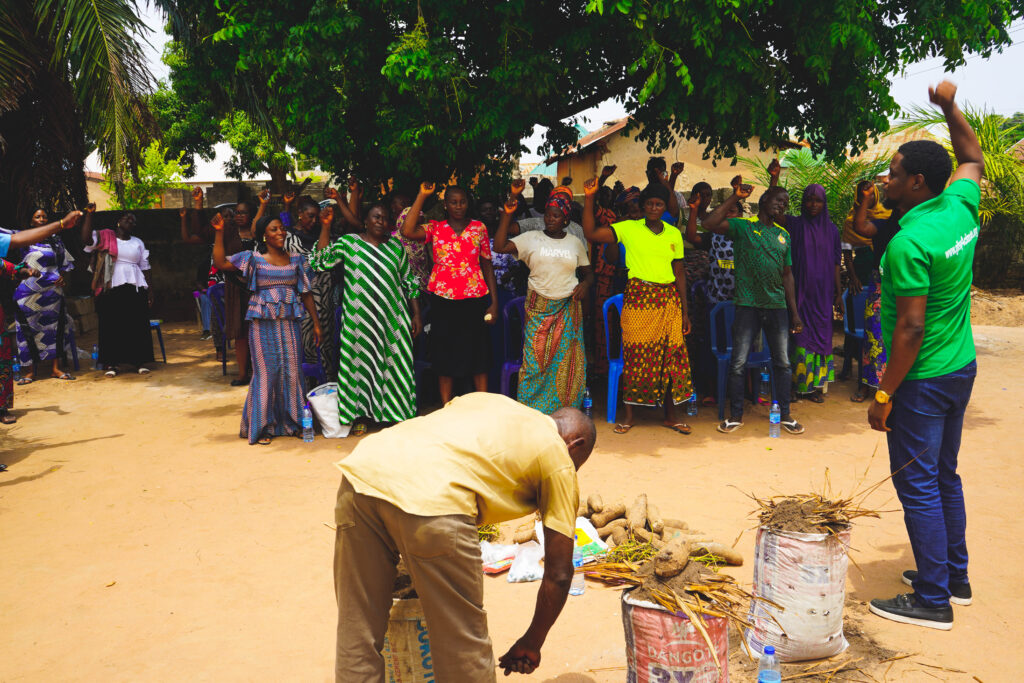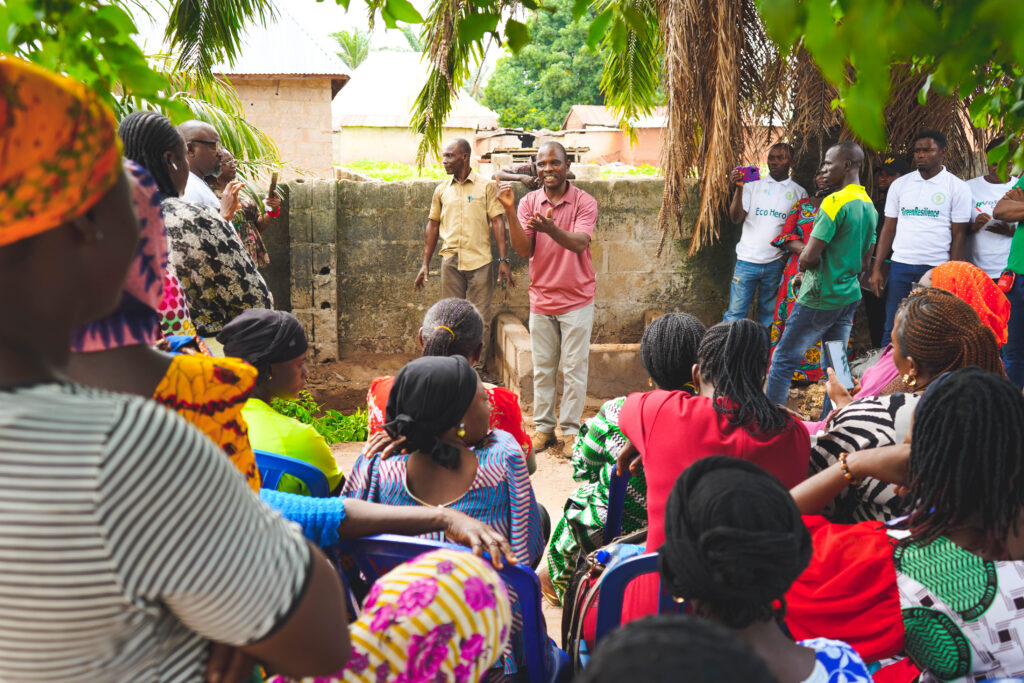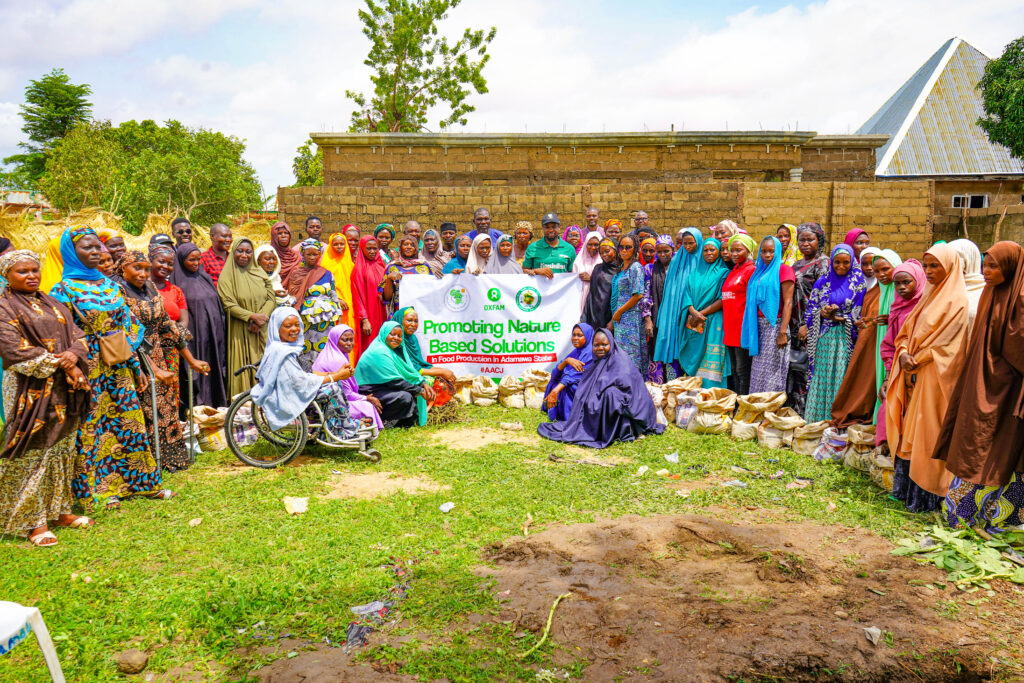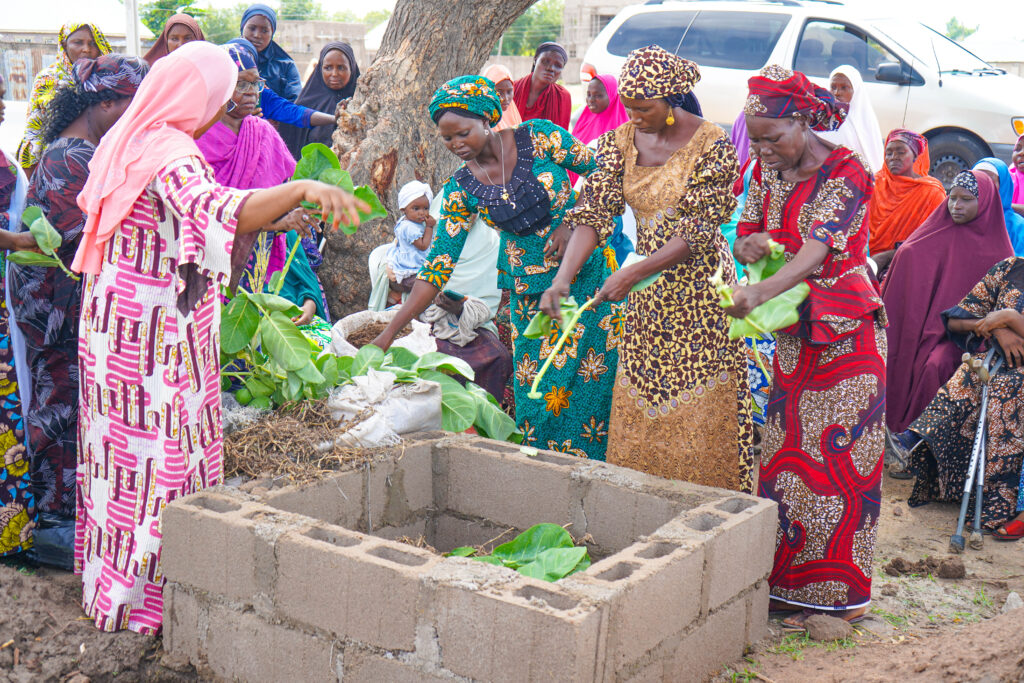In recent years, Nigeria has witnessed a steady rise in food inflation, underscoring the growing issue of food insecurity across the nation. Addressing this critical issue involves recognizing the pivotal role of smallholder farmers in achieving hunger and poverty reduction through their active participation in food production. Smallholder farmers provide more than 90% of the food consumed in Nigeria, making them the backbone of the country’s food supply. However, changes in weather patterns and climate conditions severely affect their productivity, especially since the majority rely on rain-fed agricultural practices.

The challenges faced by smallholder farmers are exacerbated by their inability to access timely weather information and agricultural land. Therefore, it is crucial to devise innovative solutions to address these challenges to reduce food insecurity and increase farmer resilience to climate change.
One promising approach is the implementation of Nature-Based Solutions (NBS) for agricultural production. NBS utilize natural processes to address socio-environmental issues such as climate change mitigation and adaptation, food security, water security, and disaster risk reduction. These include various climate-smart agricultural practices that reduce farmers’ vulnerability to the impacts of climate change. Many of these practices are already entrenched in rural communities but require widespread adoption and expansion to enhance food production.

The Global Initiative for Food Security and Ecosystem Preservation (GIFSEP), as part of the African Activist for Climate Justice (AACJ) project, has taken proactive steps to empower smallholder farmers in Nasarawa and Adamawa states on NBS. Farmers were trained in various climate-smart agricultural practices, including sack farming and composting. Sack farming promotes urban farming and reduces dependence on rain-fed agriculture, providing a viable alternative for food production in urban areas where pervious or infertile lands subsist. Composting helps reduce the reliance on chemically grown food, promoting organic farming practices that are both sustainable and environmentally friendly.

In the Azuba community, located in the Lafia Local Government Area of Nasarawa State, 85 smallholder farmers were trained in climate-smart agricultural techniques. This diverse group consisted of women and youths, reflecting an inclusive approach to community empowerment. The methods of sack farming and composting introduced to the participants are especially beneficial for growing food in homes and areas with limited arable land. These approaches encourage efficient use of space and resources, allowing farmers to cultivate crops in small, controlled environments while minimizing the need for chemical fertilizers.
Likewise, in the Lakare community, located in the Yola South Local Government Area of Adamawa State, about 80 farmers, including women and youths, took part in similar training sessions. By emphasizing inclusive capacity building, the training promotes sustainable agriculture and encourages gender equality and youth involvement in agricultural processes.

As Nigeria continues to grapple with the effects of climate change and food insecurity, these practical efforts offer hope and a pathway toward a more resilient and sustainable agricultural sector. By supporting smallholder farmers and promoting the adoption and scaling of nature-based solutions, we can work towards a future where food security is not just a goal but a reality for all. The solutions are already with us; all we need to do is recognize and take action on them.
